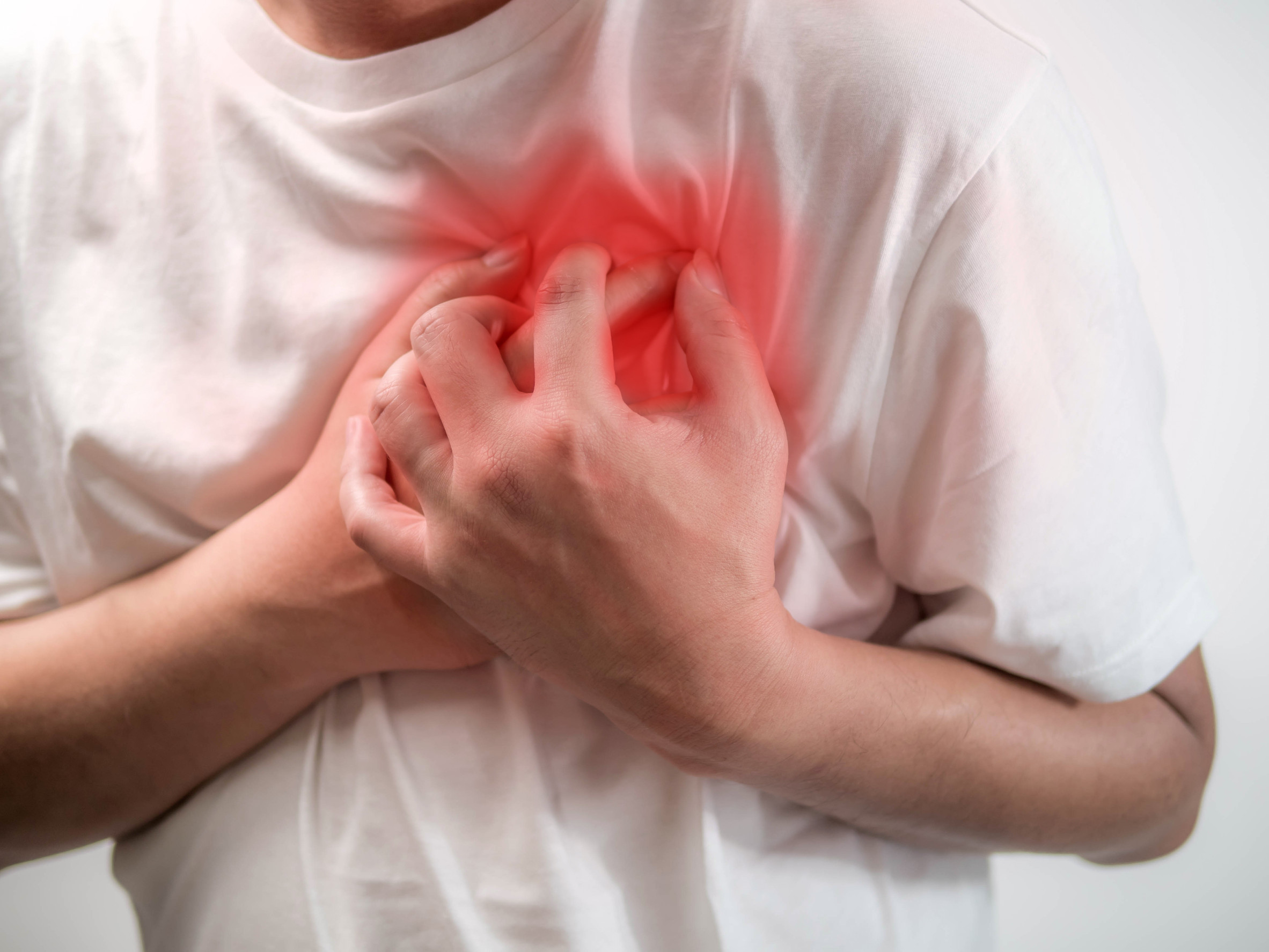Heart attacks rarely come crashing in with dramatic chest clutching and collapsing like in the movies. More often, they sneak in quietly, wearing disguises that make them easy to overlook until it’s too late. Some of these signs feel so distant from the heart that people chalk them up to stress, aging, or even bad posture.
But what if your body has been trying to whisper a final warning before it’s done trying?
Sudden, Crushing Fatigue
There’s tired, and then there’s the kind of exhaustion that feels like your limbs are filled with wet cement. When your heart starts to struggle, it pulls energy from places that need it most—leaving you feeling like even standing is a monumental effort. This isn’t about needing a nap after a long day, but more about feeling winded from walking to the kitchen. It often appears days or even weeks before the actual heart attack, especially in women. If your energy vanishes without reason, your heart might be waving a red flag.
Jaw, Neck, or Back Discomfort That Just Feels “Off”
It’s not uncommon for heart attack symptoms to show up far from the chest. Pain or tightness radiating up into the jaw, down the neck, or spreading across the upper back can sometimes be the only signs. People often confuse this for muscle strain, tension headaches, or even dental problems. What makes it dangerous is that it doesn’t feel urgent—just strange, maybe annoying, but nothing you’d call 911 for. That misjudgment can make all the difference when seconds start to matter.
Persistent Nausea or a Feeling of Indigestion
Some heart attacks begin with what feels like an upset stomach. The feeling may linger, grow into nausea, or even cause vomiting—especially in women. Many attribute this to something they ate or a mild flu bug and dismiss it without a second thought. But what’s happening inside is that the heart isn’t pumping blood efficiently, and your digestive system is among the first to feel the strain. If nausea comes on with no logical cause and refuses to fade, your body may be trying to warn you of something far worse than spoiled food.
A Sudden Sense of Doom You Can’t Explain
One of the eeriest, most chilling symptoms is what some survivors describe as an overwhelming “sense of impending doom.” It’s not tied to a thought, an event, or any external cause—just a deep, primal feeling that something is catastrophically wrong. This sensation is often paired with a racing heartbeat, dizziness, or cold sweats, but the dread itself can show up first. While it might sound vague, it’s your nervous system reacting to internal chaos as your heart falters. If your instincts scream that something isn’t right, it’s worth listening to them.
Cold Sweats That Hit Out of Nowhere
Imagine sitting still, maybe even lying down, and suddenly your body starts pouring sweat as if you’d just run five miles. These cold, clammy sweats are the body’s stress response to a lack of blood flow—triggered when your heart is no longer pumping effectively. They usually come without warning and are often mistaken for anxiety attacks or hot flashes. But unlike emotional stress, these sweats tend to feel wrong, disconnected from anything in your environment. If you’re not doing anything active and you’re drenched in sweat, your heart may be waving a white flag.
Feeling Dizzy or Lightheaded for No Reason
A brief dizzy spell can happen from standing up too fast, sure—but dizziness that lingers or comes on without explanation is something else entirely. When your heart can’t pump enough blood to your brain, the first warning comes in the form of wooziness, lightheadedness, or feeling like you might pass out. Sometimes people even faint, which is a direct signal that oxygen flow to the brain has dropped dangerously. These symptoms can be brushed off as dehydration or fatigue, but they may also mean your heart is in critical condition. Don’t ignore the room spinning—it may be your body’s final cry for help.
Unexplained Shortness of Breath
Shortness of breath doesn’t always feel dramatic—it might just seem like you can’t get a deep enough breath, even when you’re sitting down. For many, it happens without chest pain at all, making it even easier to overlook. If you find yourself huffing and puffing from minor exertion, or you’re waking up gasping at night, it could be your heart struggling to keep up. This symptom can creep in quietly, increasing over days until the heart gives out. Oxygen is life, and your body knows when it’s running low—even if your brain doesn’t catch on right away.
Swelling in Your Legs, Ankles, or Feet
Fluid retention in the lower body is often the result of poor circulation, a key sign of heart failure. If your heart can’t pump efficiently, blood backs up in your veins, and gravity pulls that fluid down to your legs. You might notice your shoes feel tighter or your ankles look puffy by the end of the day. This kind of swelling, called edema, is often painless but persistent. Don’t write it off as just aging or being on your feet—your heart might be under more pressure than you realize.
Irregular or Racing Heartbeat
Your heart is supposed to keep a steady rhythm, and when it doesn’t, something’s up. An irregular heartbeat, or one that races for no reason, could mean your heart is struggling to maintain control. It may feel like fluttering, pounding, or skipping beats—and while some arrhythmias are benign, others are precursors to a heart attack. People often confuse this with stress or caffeine, but if your heart keeps acting out of rhythm, it may be preparing for a catastrophic failure. Listen to your pulse—when it speaks, it usually means something.
The Takeaway: Don’t Wait for the “Classic” Signs
Not every heart attack begins with pain in the chest. Some start in your gut, your jaw, your legs—or even just in your mind. The body has a thousand ways of asking for help, and the heart is no exception. The symptoms above might seem odd, disconnected, or even harmless—but they could also be your body’s final warnings before it shuts down. If you experience any combination of these, especially with a feeling that something’s deeply wrong, don’t wait—get help immediately.
Have you or someone you know experienced any of these lesser-known symptoms? Share your story or thoughts in the comments below—your insight could save a life.
Read More
9 Foods That Will Make You Heart Attack Prone
Why So Many People Are Struggling with Gut Health Today



Leave a Reply